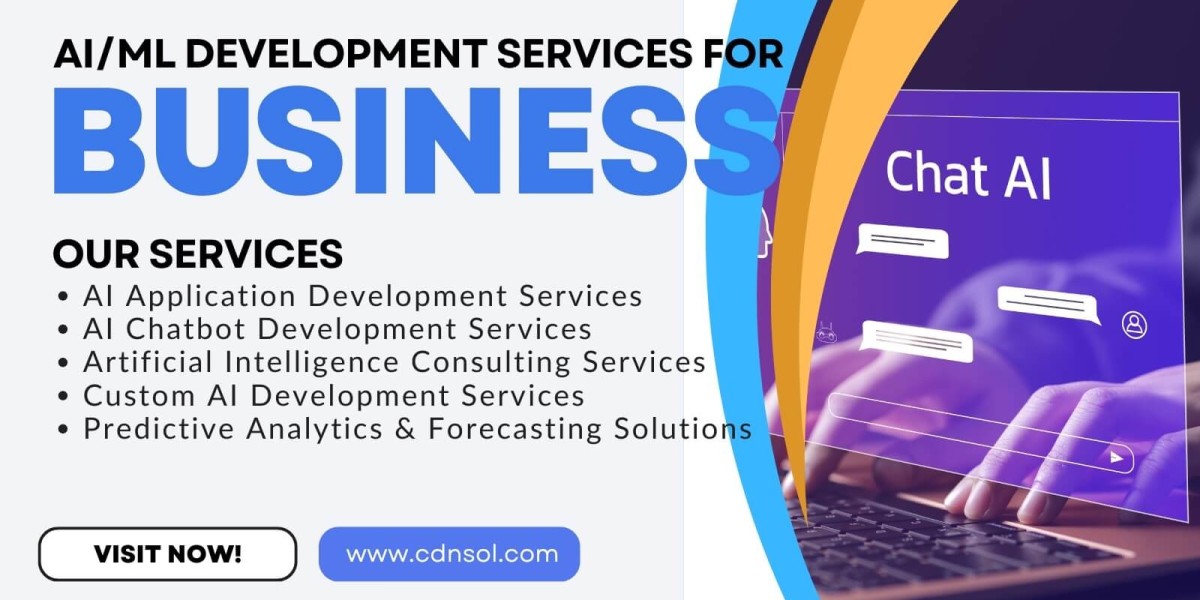Artificial Intelligence (AI) is revolutionizing industries, from healthcare to finance, by automating processes and enhancing decision-making capabilities. However, as AI becomes more pervasive, ethical concerns around its development are increasingly coming to light. Addressing these concerns is essential for ensuring that AI contributes positively to society without causing harm. In this article, we will explore the ethical implications of AI, including bias, fairness, and accountability, and how AI development companies can implement responsible practices.
The Ethical Implications of AI Development
1. Bias in AI Systems
AI models are often trained on large datasets that reflect existing societal biases. When these biases are embedded in the data, AI systems can produce discriminatory outcomes. For example, facial recognition technologies have shown higher error rates for people of color, while biased hiring algorithms have inadvertently favored male candidates over female applicants. These cases highlight the need for AI development companies to adopt practices that mitigate bias at every stage of the AI lifecycle.
- Solution: To combat bias, AI developers should use diverse and representative datasets that reflect various demographic groups. Techniques such as bias detection algorithms and fairness-aware machine learning can help identify and reduce bias in AI models.
2. Fairness and Equity
Fairness in AI refers to the principle of ensuring that AI models treat all individuals equally and do not discriminate based on factors such as race, gender, or socioeconomic status. The challenge lies in defining what constitutes "fair" in different contexts, as fairness may vary across industries and use cases.
- Solution: AI development services can incorporate fairness metrics into their model evaluation processes. AI development companies can also establish guidelines for ethical AI design, ensuring that their models account for fairness during development and deployment.
3. Accountability and Transparency
The "black box" nature of many AI models, particularly deep learning algorithms, makes it difficult to understand how they arrive at certain decisions. This lack of transparency raises concerns about accountability, especially in critical applications like healthcare and criminal justice.
- Solution: AI development companies should focus on developing explainable AI (XAI) models that offer insights into how decisions are made. By providing interpretable explanations, companies can ensure that AI-driven decisions are accountable and can be audited if necessary.
The Regulatory Landscape and Industry Standards
Current AI Regulations and Guidelines
Governments and regulatory bodies around the world are working on guidelines to govern AI ethics. The European Union's AI Act and the United States' Blueprint for an AI Bill of Rights are notable examples. These regulations aim to establish a framework for ethical AI development, focusing on risk management, data privacy, and algorithmic transparency.
- Solution: AI development companies should stay informed about the latest regulatory changes and ensure their AI services comply with these guidelines. Compliance not only builds trust with clients but also protects companies from legal repercussions.
Industry Standards for Ethical AI Development
Standards set by industry bodies such as IEEE, ISO, and NIST provide benchmarks for responsible AI practices. These standards help developers and companies align their processes with ethical considerations, ensuring consistency across different AI projects.
- Solution: AI development services should integrate these standards into their workflows, offering clients the assurance that ethical considerations are prioritized throughout the development lifecycle.
Implementing Responsible AI Practices
Data Management and Curation
Ethical AI development begins with data. The quality, diversity, and representativeness of training datasets significantly impact the fairness and bias of AI models. Companies should adopt best practices for data governance, including data anonymization, ethical data sourcing, and diversity checks.
- Solution: AI development companies can offer data preprocessing services that identify and address bias at the data level. Incorporating data augmentation techniques can help create more balanced datasets, thereby reducing potential bias in AI models.
Model Interpretability and Explainability
Explainable AI (XAI) is essential for enhancing transparency and trust in AI systems. XAI methods enable developers to understand how an AI model makes its decisions, providing a basis for auditing and improving the model.
- Solution: AI development services should include XAI techniques, such as LIME (Local Interpretable Model-agnostic Explanations) or SHAP (SHapley Additive exPlanations), to improve model interpretability. These techniques can help identify potential ethical concerns early in the development process.
Continuous Monitoring and Auditing
Ethical AI development does not end with deployment. AI systems need continuous monitoring to detect issues such as model drift, where changes in data distribution can lead to biased or inaccurate predictions. Regular audits ensure that AI models maintain their ethical standards over time.
- Solution: AI development companies can offer monitoring services that include model performance evaluation, bias detection, and regular updates. Providing clients with tools to continuously audit AI systems ensures long-term adherence to ethical guidelines.
The Role of AI Development Companies in Promoting Ethical AI
Providing AI Development Services with a Focus on Ethics
AI development companies have a significant role to play in shaping the future of AI ethics. By integrating ethical guidelines into their services, companies can help clients develop AI solutions that prioritize fairness, accountability, and transparency. This includes offering consulting services to help businesses understand regulatory requirements and align their AI projects with ethical standards.
Training and Awareness Programs
Raising awareness about AI ethics is crucial for both developers and clients. AI development companies can create training programs that focus on ethical considerations, ensuring that their teams and clients are well-versed in responsible AI practices.
Case Studies of Responsible AI in Action
Several AI development companies have successfully implemented ethical AI principles in real-world projects:
- AI-Powered Medical Diagnosis: AI development services have helped healthcare companies implement ethical AI models for diagnostic tools, ensuring that algorithms do not show bias towards any demographic group.
- Bias Detection in Hiring Platforms: AI companies have collaborated with recruitment firms to develop AI-powered hiring tools that reduce bias by anonymizing candidate data during the selection process.
Future Directions for AI Ethics
Ethical AI in Emerging Technologies
As technologies like quantum computing, edge AI, and autonomous systems evolve, the ethical challenges associated with AI will also evolve. Addressing these challenges will require continuous research, collaboration, and the development of new ethical frameworks.
Collaboration Across Disciplines
Ensuring the future of ethical AI requires a multidisciplinary approach, involving ethicists, policymakers, AI developers, and industry leaders. Collaborative efforts can help shape policies and standards that prioritize responsible AI development.
Conclusion
The future of AI ethics depends on the collective efforts of AI developers, companies, regulators, and society. By adopting responsible AI practices, companies can mitigate ethical risks and build AI solutions that not only solve problems but do so in a way that is fair, transparent, and accountable. AI development companies and services have a critical role in promoting ethical AI, ensuring that as technology advances, it benefits everyone in a responsible manner.



